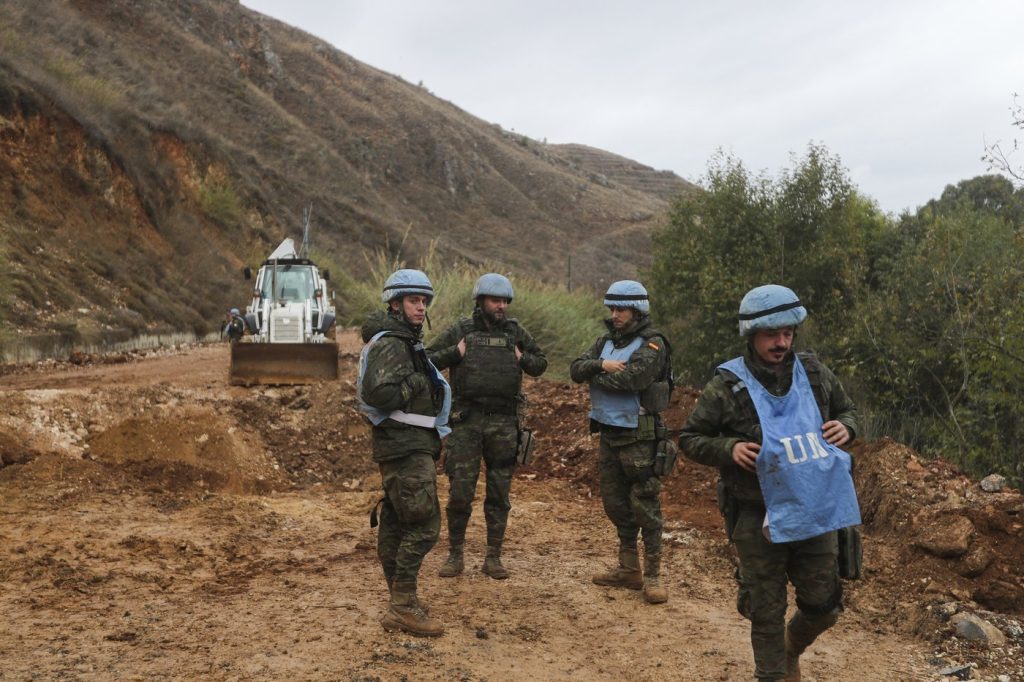The future of U.N. peacekeepers in Lebanon has become a contentious issue, creating a rift between the United States and its European allies, including France, Britain, and Italy. The conflicting opinions raise significant implications for Middle Eastern security and highlight ongoing tensions in U.S.-European relations.
The focus is on the U.N. peacekeeping operation known as UNIFIL, established following Israel's 1978 invasion to supervise the withdrawal of Israeli troops from southern Lebanon. The operation's mandate is set to expire at the end of August and requires renewal by the U.N. Security Council. Its mission was expanded after the 2006 conflict between Israel and the militant group Hezbollah.
For decades, the multinational force has monitored security in southern Lebanon, notably during the recent Israel-Hezbollah war. However, the operation faces criticism from various quarters, including multiple U.S. lawmakers, some now influential in the administration of President Donald Trump. Recently, political appointees in the Trump administration expressed intentions to dismantle UNIFIL, calling it an ineffective expenditure that advertently delays the goal of eradicating Hezbollah’s influence.
In an initiative to reduce U.S. financial support for the peacekeeping operation, Secretary of State Marco Rubio approved a strategy aimed at winding down UNIFIL within the next six months, following discussions with congressional aides. This marks a further step in the Trump administration's broader agenda to cut back foreign affairs priorities and budget, motivated by skepticism towards international alliances.
European nations, particularly France and Italy, are resisting a prompt cessation of UNIFIL's mandate. They successfully persuaded Rubio to agree to a one-year extension of the peacekeeping operation, followed by a specifically designated six-month winding-down period. Israel ultimately concurred with this extension, though the stakes are higher than ever following the previous year’s conflict and increasing opposition in the U.S. capital.
European diplomats argue that an abrupt withdrawal of UNIFIL could create a security vacuum that Hezbollah might exploit. France has underscored incidents from a previous U.N. mission in Mali, which faced dire consequences upon early termination, leading to the infiltration of extremist groups in the area.
As discussions among U.N. representatives are approaching the vote expected at the end of August, the primary sticking point appears to be France and other nations' reluctance to adhere to a firm deadline for UNIFIL's termination after the one-year extension. Instead of specifying a withdrawal date, the final French draft resolution extends the mission for a year but indicates the U.N. Security Council's "intention to work on a withdrawal."
Even with a renewed mandate, financial constraints may lead to a reduction in the peacekeeping mission, with significant budget cuts anticipated within the U.N. system. A proposal under consideration includes reducing the number of peacekeepers while enhancing technological capabilities to monitor the situation effectively.
Currently, the peacekeeping force consists of approximately 10,000 personnel in southern Lebanon, while the Lebanese army is reported to have around 6,000 soldiers, with plans for expansion. UNIFIL has faced accusations of ineffectiveness from both sides—Hezbollah supporters claim collusion with Israel, while Israel accuses the mission of ignoring Hezbollah's military activities.
In Lebanon, officials are advocating for UNIFIL’s continued presence, stating that the country’s military is not prepared to solely manage security in the region. Retired Lebanese Army Gen. Khalil Helou warned that a sudden end to UNIFIL might necessitate redeploying soldiers from crucial border areas, possibly destabilizing the country further. The United Nations deems the peacekeepers essential for maintaining stability in the region.
As discussions continue, UNIFIL spokesperson Andrea Tenenti reiterated that the decision regarding the mission's renewal lies with the U.N. Security Council, emphasizing the mission's role in assisting parties with the mandate's implementation and awaiting the final decision.











